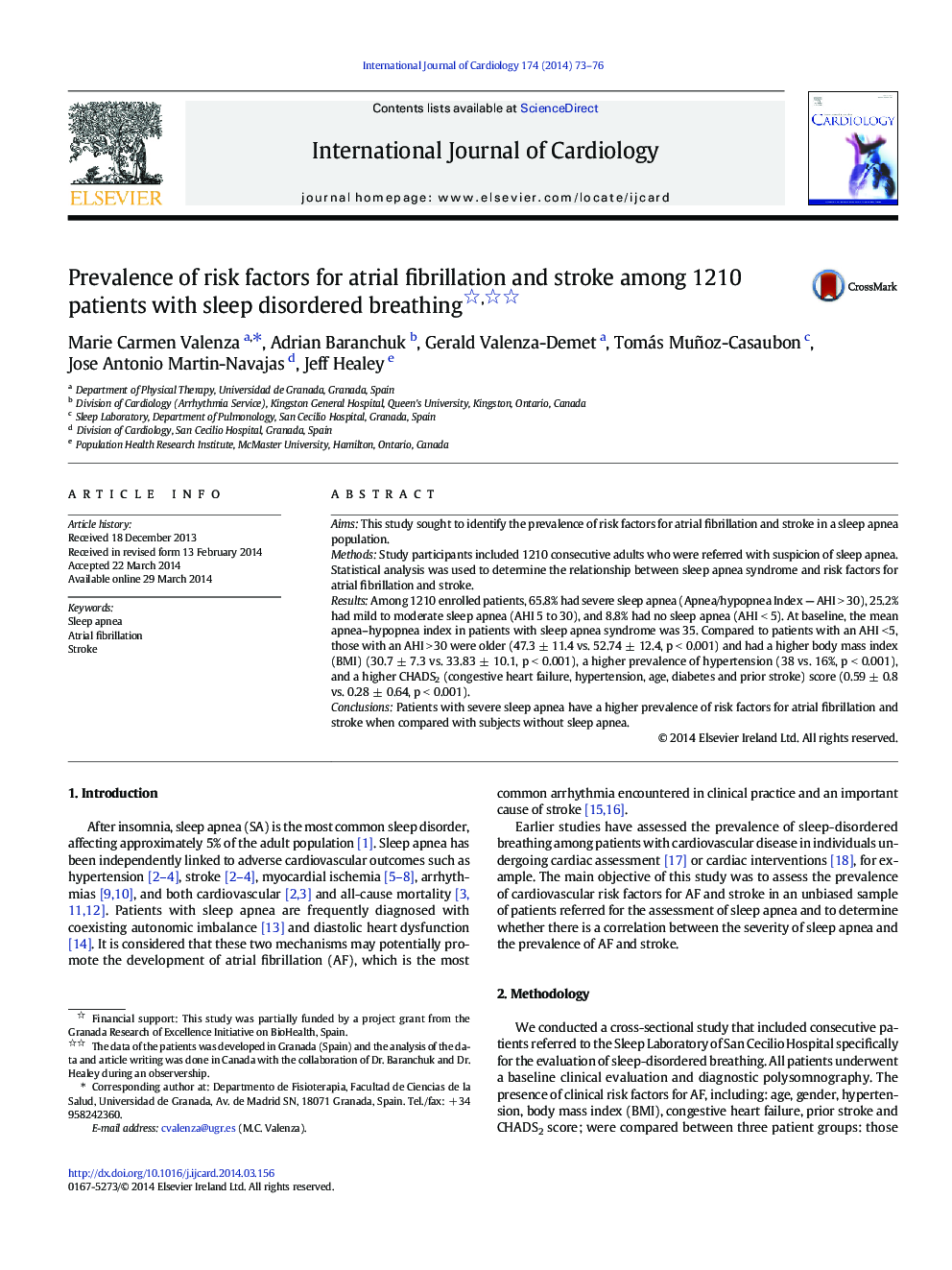| Article ID | Journal | Published Year | Pages | File Type |
|---|---|---|---|---|
| 5971353 | International Journal of Cardiology | 2014 | 4 Pages |
AimsThis study sought to identify the prevalence of risk factors for atrial fibrillation and stroke in a sleep apnea population.MethodsStudy participants included 1210 consecutive adults who were referred with suspicion of sleep apnea. Statistical analysis was used to determine the relationship between sleep apnea syndrome and risk factors for atrial fibrillation and stroke.ResultsAmong 1210 enrolled patients, 65.8% had severe sleep apnea (Apnea/hypopnea Index - AHI > 30), 25.2% had mild to moderate sleep apnea (AHI 5 to 30), and 8.8% had no sleep apnea (AHI < 5). At baseline, the mean apnea-hypopnea index in patients with sleep apnea syndrome was 35. Compared to patients with an AHI < 5, those with an AHI > 30 were older (47.3 ± 11.4 vs. 52.74 ± 12.4, p < 0.001) and had a higher body mass index (BMI) (30.7 ± 7.3 vs. 33.83 ± 10.1, p < 0.001), a higher prevalence of hypertension (38 vs. 16%, p < 0.001), and a higher CHADS2 (congestive heart failure, hypertension, age, diabetes and prior stroke) score (0.59 ± 0.8 vs. 0.28 ± 0.64, p < 0.001).ConclusionsPatients with severe sleep apnea have a higher prevalence of risk factors for atrial fibrillation and stroke when compared with subjects without sleep apnea.
